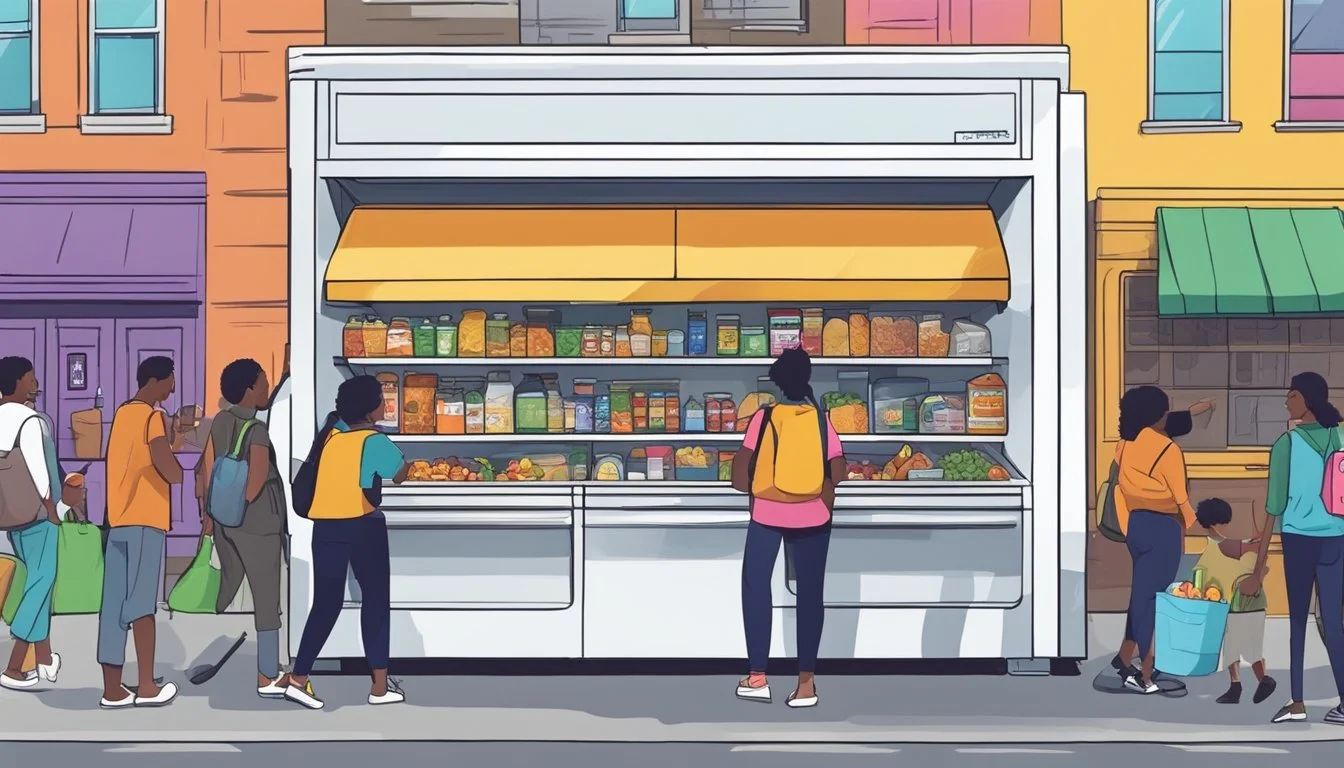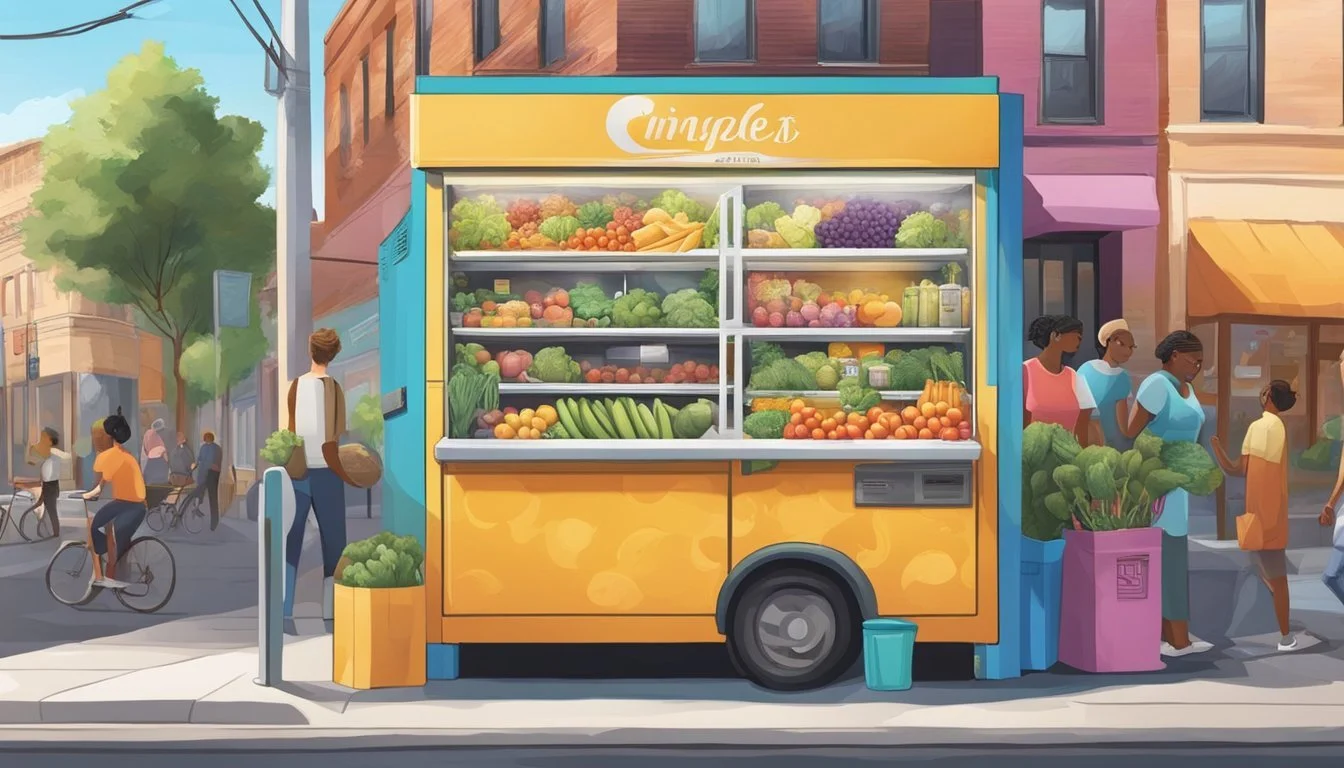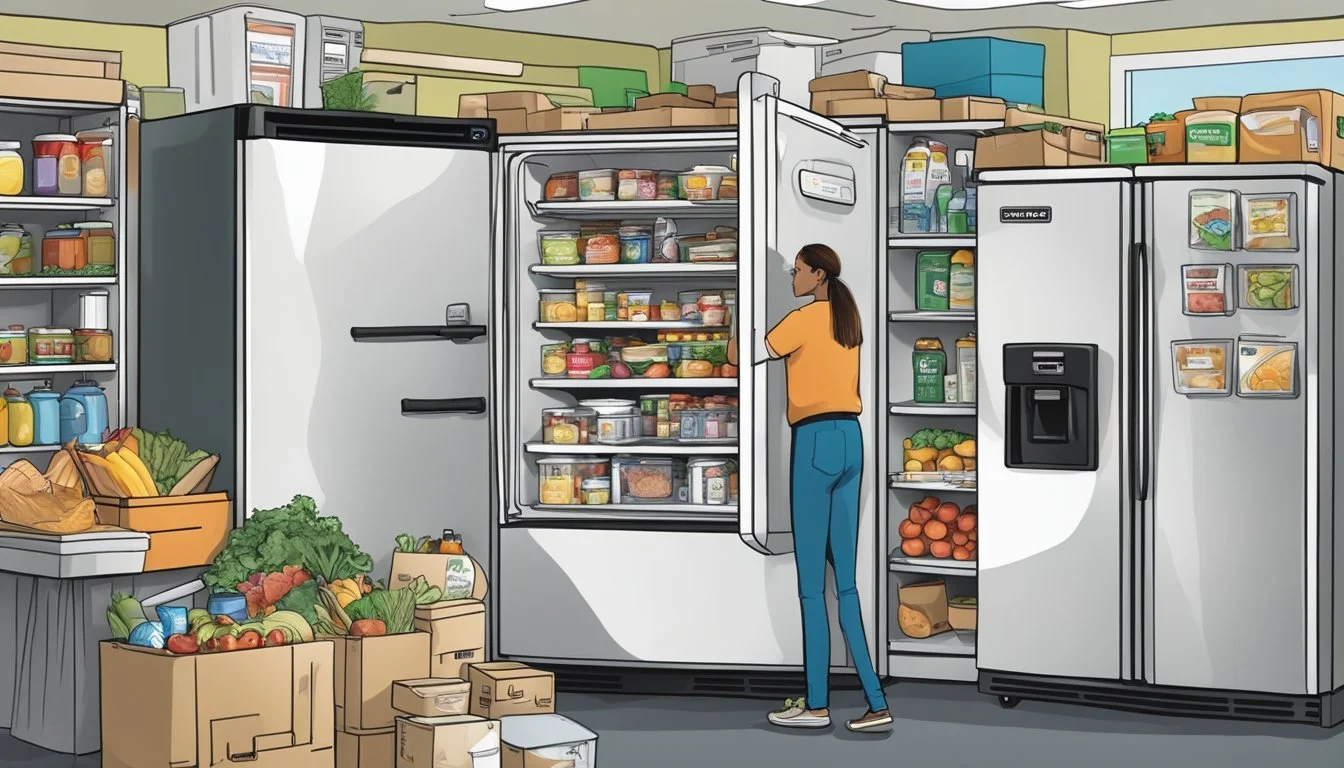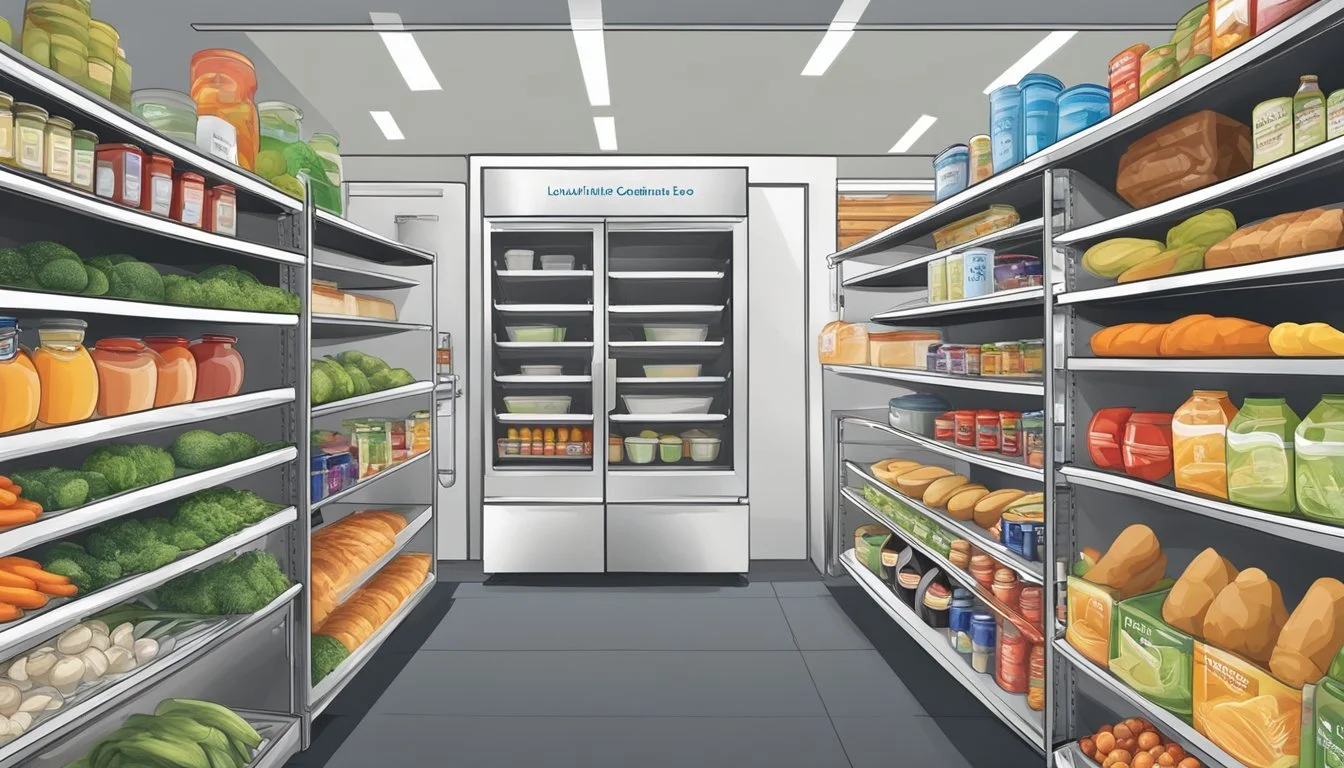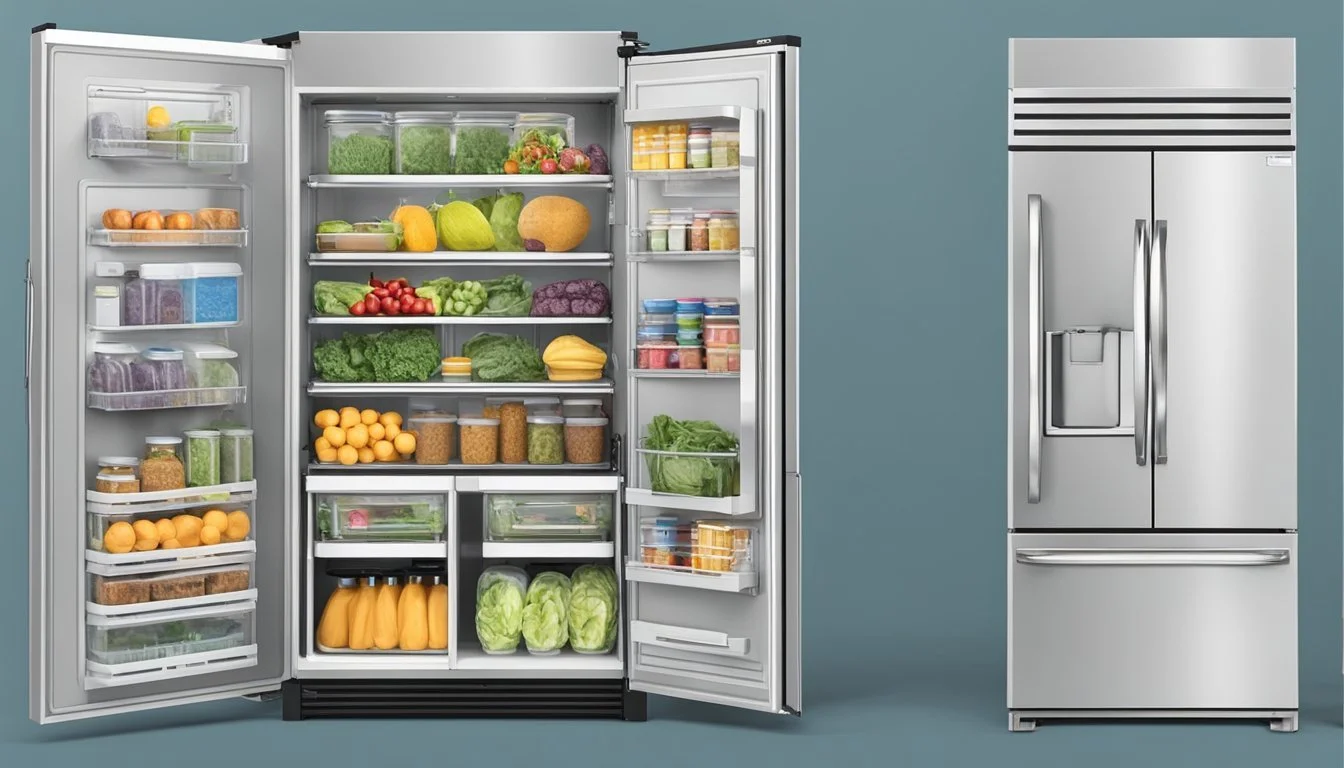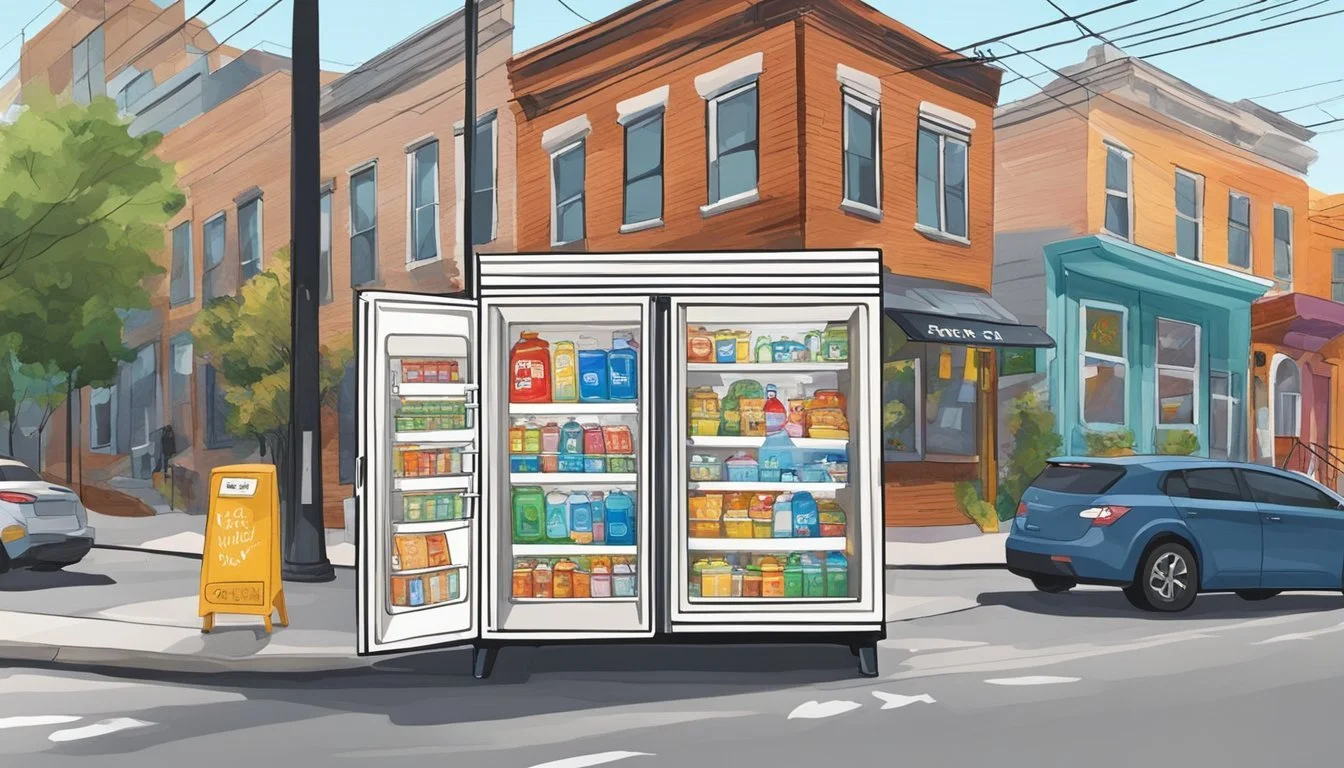Louisville, KY Community Fridge Initiative
Tackling Food Insecurity Together
The city of Louisville, Kentucky has witnessed the growing momentum of a community-centric initiative aimed at tackling food insecurity – the Community Fridge program. Anchored in the belief that access to fresh, healthy food is a right, not a privilege, this program empowers local organizations by providing them with refrigeration units. These community fridges are then stocked with produce and other nutritious food items, available for free to individuals and families experiencing food scarcity.
Significant support from both local businesses and larger entities has helped the Fresh Fridge program expand its reach across the state. Anthem Blue Cross and Blue Shield Medicaid, recognizing the value in community health, have recently invested further in the program. Their sponsorship exemplifies a broader commitment to nurturing the welfare of the community through sustainable and practical methods. Such programs hint at the ethos of Louisville’s citizens and their collective efforts toward fostering a supportive and resilient community.
Community Fridge Initiative
The Community Fridge Initiative in Louisville operates to address food insecurity by providing refrigeration units for the storage and distribution of produce and healthy food items to those in need.
Origins and Mission
This initiative was established with the goal of improving access to fresh foods within local communities. The Fresh Fridge program, specifically, has expanded its operations across the state, aiming to support community organizations in their efforts to serve households facing food scarcity.
Locations in Louisville
Several community fridges have been set up across Louisville, often situated within reachable distances for residents who benefit the most from the initiative. These refrigeration units are hosted by various community organizations dedicated to combatting hunger.
How to Contribute
Contributions to the Community Fridge Initiative in Louisville can be made in several ways:
Donating Produce: Fresh fruits and vegetables are always needed to keep the fridge stock healthy and beneficial.
Volunteering Time: Individuals can help manage the fridge locations by monitoring, cleaning, and restocking units.
Financial Donations: Monetary gifts help to maintain the refrigeration units and cover associated costs.
Residents are encouraged to participate in the program to help continue its mission of easing food insecurity in their community.
Contributing Appliances
In Louisville, KY, community members are actively involved in supporting local initiatives like the Community Fridge project by donating and ensuring the use of energy-efficient appliances.
Donating Refrigerators
When contributing refrigerators to the Louisville Community Fridge, individuals should ensure that the appliances are in good working condition. They play a crucial role in the preservation of food donations for those in need. Here is a basic checklist for donors:
Condition: Verify that the refrigerator is fully operational.
Cleanliness: Clean the appliance thoroughly before donation.
Size: Consider the space available at the donation site.
Energy Efficient Models
Contributing Energy Star certified refrigerators is highly encouraged as they conserve energy and reduce operational costs. These models are essential for a sustainable community effort and can significantly impact Louisville's carbon footprint. Key features of Energy Star refrigerators include:
Reduced Energy Use: On average, they are 9-10% more energy-efficient than models that simply meet the federal minimum standard for energy efficiency.
Cost Savings: Over time, these units can lead to significant savings on electricity bills.
Energy Star appliances not only support the environment but also offer long-term benefits to the Community Fridge by keeping operational expenses manageable.
Environmental Impact
The Louisville Community Fridge initiative directly addresses critical environmental issues by focusing on reducing food waste and repurposing old appliances. These actions contribute significantly to resource conservation and waste reduction efforts in the region.
Reducing Food Waste
Statistics: Communal refrigerators help mitigate food waste, a substantial contributor to greenhouse gas emissions when organic matter decomposes in landfills. By offering a place where excess food can be shared rather than discarded, the Louisville Community Fridge plays a pivotal role in ensuring edible food is consumed.
Key Actions:
Collection of surplus food from individuals and businesses.
Distribution of food to those in need before it spoils.
This approach not only feeds the hungry but also cuts down on the methane emissions that would have occurred if the food went into the landfill.
Recycling Old Appliances
Materials Reuse: Donated appliances are either put to use at the fridge locations or responsibly recycled. Through recycling, valuable materials such as steel and copper are recovered, reducing the demand for new resources.
Environmental Benefits:
Limits extraction of raw materials.
Decreases energy usage associated with producing new appliances.
Reduces the amount of waste that would otherwise end up in landfills.
The recycling aspect of the initiative helps complete a sustainable loop, supporting the city's commitment to ecological responsibility and resource efficiency.
Support Services
The Louisville, KY Community Fridge provides essential support services that ensure the sustainability and accessibility of the initiative to the local population.
Repair and Maintenance
Repair services play a crucial role in the operational efficiency of the community fridge. A dedicated team oversees the regular maintenance schedule to handle any repairs swiftly, ensuring the fridge remains in good working order to serve the community.
Routine Checks: Monthly inspections to preemptively identify and address wear and tear.
Emergency Repairs: A contact system for reporting issues, with a commitment to resolving them as quickly as possible.
Volunteer Opportunities
Volunteer support is the backbone of the community fridge's success. They offer a variety of opportunities, which allow the community to actively participate and contribute to the cause.
Logistics Support: Volunteers help in sorting, stocking, and managing the donated food items.
Community Outreach: They play a pivotal role in spreading awareness and encouraging more participation from the residents of Louisville.
Donation Guidelines
The Louisville community fridge aims to ensure that all donations are safe for consumption and meet a high standard of quality. Here are the guidelines to consider when making donations.
Acceptable Items
Food:
Fresh fruits and vegetables: Must be washed, without noticeable spoilage, and in good condition.
Packaged, non-perishable items: Sealed and within the expiration date.
Glass containers: Should be intact, and contents must be labeled and sealed.
Non-Food:
Clean and sanitized utensils or grocery bags.
Safety and Hygiene Standards
Handling:
Donors must ensure hands are clean and use gloves when handling food to be donated.
Packaging:
It is required to securely package all items, especially those in glass containers to avoid breakage.
Labels are necessary for all homemade foods, including the preparation date and ingredients.
Storage:
Upon delivery, food must immediately be placed within appropriate temperature-controlled sections of the fridge.
Community Benefits
In Louisville, KY, community fridges, like the Fresh Fridge program, play an integral role in not just offering food security but also in fostering community engagement.
Access to Fresh Food
The Fresh Fridge program, backed by Anthem Blue Cross and Blue Shield Medicaid's investment of an additional $25,000, allows Louisville organizations to equip themselves with refrigeration units. These units are pivotal in addressing food insecurity as they provide essential storage for fresh produce and healthy food items for those in need. The initiative reflects a practical step towards ensuring constant availability of nutritious food options within the community.
Engaging Local Residents
Local residents are the lifeblood of the community benefits programs, with their engagement going beyond mere participation. These initiatives utilize large-scale construction and services contracting as a means to generate positive economic, social, and environmental outcomes for the residents of Louisville's service area. Through active involvement in programs like the Community Benefits Program by MSD or UofL Health's response during the COVID-19 fiscal year, they are instrumental in uplifting their own standards of living and catalyzing community development.
Financial Aspects
The operation and sustainability of the Louisville Community Fridge program hinge on economic factors including cost management, funding, and the financial relief it extends to participants.
Cost of Operation
The Louisville Community Fridge's operational costs encompass various expenses. Primarily, it includes the initial investment for the refrigerator unit, typically around $30, along with ongoing electricity charges. Additional costs entail maintenance, repair, and restocking of perishable and non-perishable foods.
Initial Costs: Purchase of refrigerator(s)
Recurring Costs: Electricity, maintenance, and food supplies
Funding and Donations
Financing for the Community Fridge program chiefly comes from donations and community funding. Contributions range from financial support by local businesses or grants to food donations by individuals and retailers. Monetary donations regularly subsidize the purchase and upkeep of the fridges.
Monetary Donations: Local businesses, crowdfunding, grants
In-Kind Contributions: Food items, refrigeration maintenance services
Economic Savings for Participants
Participants benefit from the free access to food, which provides significant economic savings. For many, the savings on groceries help to mitigate the financial strain of essential expenses like rent and utilities, allowing limited household budgets to stretch further.
Direct Savings: Reduced grocery expenses
Indirect Benefits: Allocated savings to other essential living costs
Appliance Specifications
When selecting appliances for the Louisville, KY Community Fridge, it is crucial to consider the specific size and capacity requirements as well as the energy efficiency to ensure both practicality and sustainability.
Size and Capacity
Top Freezer Refrigerator
Capacity: Approximately 17.6 cubic feet
Dimensions: Designed to fit common community spaces
The selected refrigerator must suit a community space, providing ample storage while remaining compact. A model with a 17.6 cubic foot capacity delivers sufficient room for perishables and is commonly available for community use.
Efficiency Ratings
Electric Dryer
Rating: Energy Star qualified models are preferable for better energy efficiency.
Dishwasher
Rating: Models rated with high efficiency can save on water and energy costs.
Appliances like dryers and dishwashers should adhere to high energy efficiency standards. Selecting Energy Star qualified products ensures these community appliances will consume less energy and contribute to lower operational costs.
Outreach and Education
The Louisville, KY Community Fridge program, through education and partnership efforts, engages with the local community to address food insecurity and promote healthy eating habits.
Workshops and Seminars
The Community Fridge program organizes workshops and seminars aimed at educating community members on nutrition and sustainable food practices. These sessions provide valuable skills training and foster greater awareness of dietary health. Topics typically include:
Proper food storage and refrigeration techniques
Meal planning with a focus on fresh produce
The advantages of using communal refrigeration for food conservation
Partnerships
Forging partnerships with local organizations and educational institutions is fundamental to the Community Fridge initiative's success. These collaborations are focused on:
Resource Sharing: Leveraging communal spaces, such as RVs converted into mobile education units, to distribute food and knowledge.
Commercial Cooperation: Working with local businesses to secure fresh produce donations, ensuring a consistent supply for the community fridges.
By engaging in these strategic alliances, the program ensures that the benefits reach a wider audience, promoting community health and cohesion.
Additional Resources
In Louisville, Kentucky, community refrigeration initiatives like the Fresh Fridge program are vital resources. They provide access to fresh food for those in need by partnering with local organizations.
Related Local Services
Feed Louisville: Utilizes a walk-in refrigerator to expand their capacity to help the hungry, following increased support from local news exposure.
Recycling Programs: LG&E and KU have implemented a fridge and freezer recycling program, encouraging proper disposal of old appliances and promoting energy efficiency.
Further Reading
Reports on Fresh Fridge Expansion: Details on the expansion of the Fresh Fridge program can be found in local news archives, highlighting the impact on community health.
Community Engagement: Insights into how GE Appliances fosters community support through the Community Heroes program, granting appliances to non-profits for their service work.
Entities such as "My Account" and "Roper" are not detailed within the provided context; thus, they are not included in this section.

